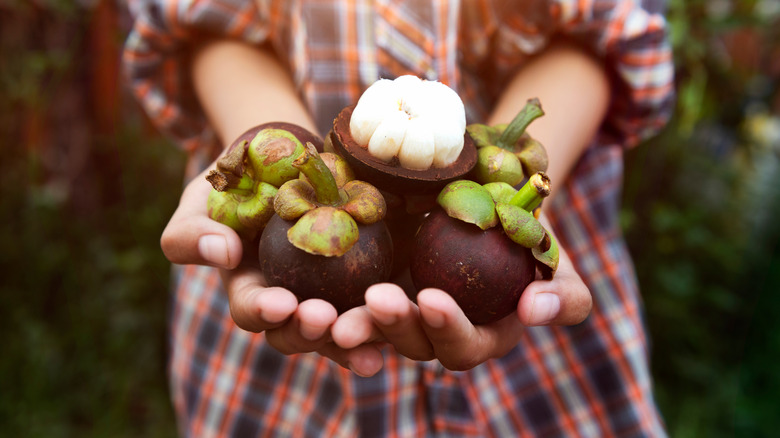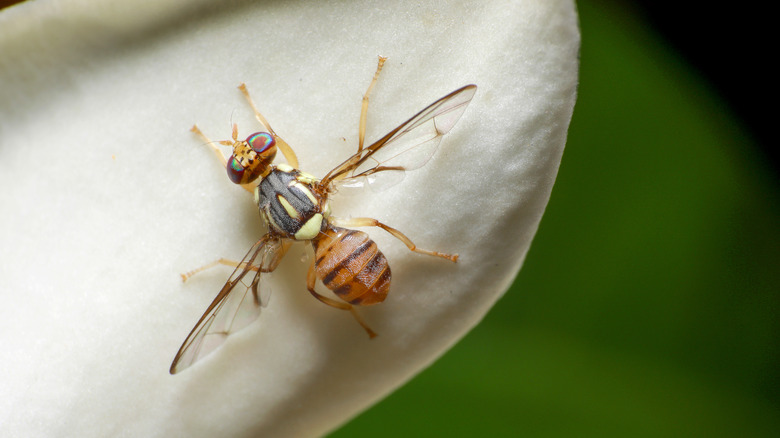The Reason Some Mangosteen Is Irradiated Before Being Sold In The US
CORRECTION 10/12/22: A previous version of this article implied all mangosteen imported into the U.S. must be irradiated. Per Specialty Produce, only mangosteen imported from Southeast Asia must undergo this process.
Tropical fruits have been growing in popularity in the U.S. in recent years. While fruits like bananas, pineapples, pomegranates, and avocados have been mainstays in the country for many years, more elusive fruits have been getting their moment. Lychee, a popular fruit in Asia, has recently been popping up on American menus. It's known for its hard-to-crack red shell and sweet flavor. Similarly, dragon fruit has recently been promoted for its numerous health benefits and beautiful coloring (via The Produce News).
But, have you ever had a mangosteen? This tropical fruit is primarily grown in Thailand and happens to look nothing like a mango. It's roughly the shape and size of a clementine, purple, and smooth, according to Martha Stewart. While the skin is firm, the white flesh inside is delicate and soft with a sweet flavor and a hint of tartness.
While mangosteens are becoming more popular, they are difficult to find in most U.S. grocery stores — with Asian produce markets being an exception — and a past ban on the fruit may be why it is not as well known across the U.S. as other tropical fruits. As Martha Stewart explained, mangosteens from Thailand aren't allowed to enter the country unless they've been irradiated.
Why some mangosteens have to be irradiated
The original reason for banning mangosteen imports to the U.S. was due to fears that it would bring the Asian fruit fly into the country. According to the U.S. Department of Agriculture, the flies are a "destructive agricultural pest" and can pose a big threat to many crops. "It is known to attack more than 400 fruits and vegetables, including apricots, cherries, citrus, figs, peaches, pears, plums and tomatoes," they explain.
Due to this, a ban around many tropical fruits, including the mangosteens, was put in place. However, it was lifted in 2007 due to fruits imported from Southeast Asia becoming subject to an irradiation process (via Martha Stewart). According to the site, irradiation is an "ultra-violet process used on many not-organically certified fruits and vegetables, as well as meat; It sterilizes pests and destroys pathogens and can extend shelf life."
Now that the fruit is safe to import and buy around the country, where exactly can you purchase it? Your best bet is an urban Asian produce market during the summer months, when the fruit is being harvested, or an online seller like MiamiFruit. Whole Foods also occasionally sells the fruit, which National Geographic reports is imported from Puerto Rico by the Panoramic Fruit Company, but due to a number of factors the company's mangosteen crop is fairly low and the fruits often sell out quickly.
Good luck on your — hopefully many — mangosteen adventures.

